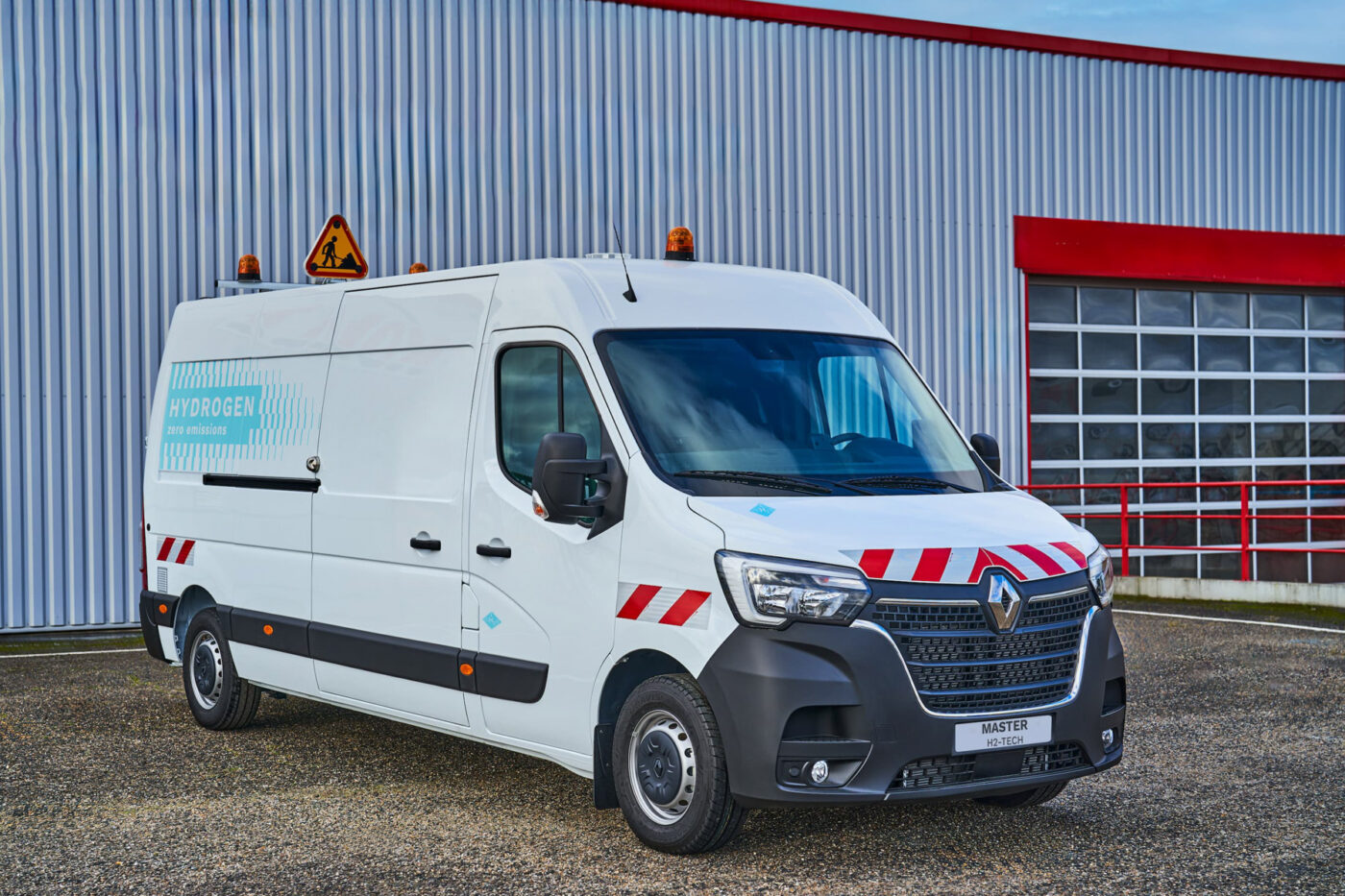Hyvia, the collaborative venture between Renault and Plug Power, revealed the enhanced design of the Renault Master H2-Tech fuel cell transport vehicle during the Solutrans trade fair. Anticipated to hit the market in the second quarter of 2024, the upgraded model includes smaller body variants, specifically the L2H2 (10.4 cubic meters) and L3H2 (12.6 cubic meters), in addition to the existing Renault Master H2-Tech L3H3 series with 14.4 cubic meters of load space.
The major modification involves the repositioning of the hydrogen tanks, which were previously situated on the vehicle roof in the October 2021 panel van model. The tanks will now be located in the underbody. The electric drive maintains its 57 kW output, while the fuel cell, also housed in the engine compartment, contributes 30 kW. Collaborating with the 33 kWh battery beneath the driver’s cab, the powertrain is supplied with energy. The 400-volt battery can be externally charged at 7.4 kW through a port on the passenger side. The hydrogen filler neck is positioned on the driver’s side, and an additional electric storage unit in the load compartment occupies 0.4 cubic meters of space.
Hyvia claims that the payload for the current generation increases to a maximum of 1,389 kilograms with the new fuel cell architecture. The company pledges refueling times of less than five minutes and WLTC ranges extending up to 320 kilometers. The redesigned architecture of the Renault Master H2-Tech opens possibilities for diverse conversions, such as workshop vehicles, ambulances, or refrigerated vehicles, owing to the elimination of rooftop H2 tank space requirements. An L3H3+ model with Sortimo bodywork was showcased at Solutrans.
Furthermore, Hyvia is in the process of developing a next-generation hydrogen-powered van based on Renault’s latest Master, also presented at Solutrans. Expected to launch in various versions from 2025, no technical details have been disclosed yet. The upcoming generation will be manufactured through the standard production process at the Batilly plant, eliminating the need for subsequent conversions. Hyvia will handle the fuel cell system assembly in Flins.

